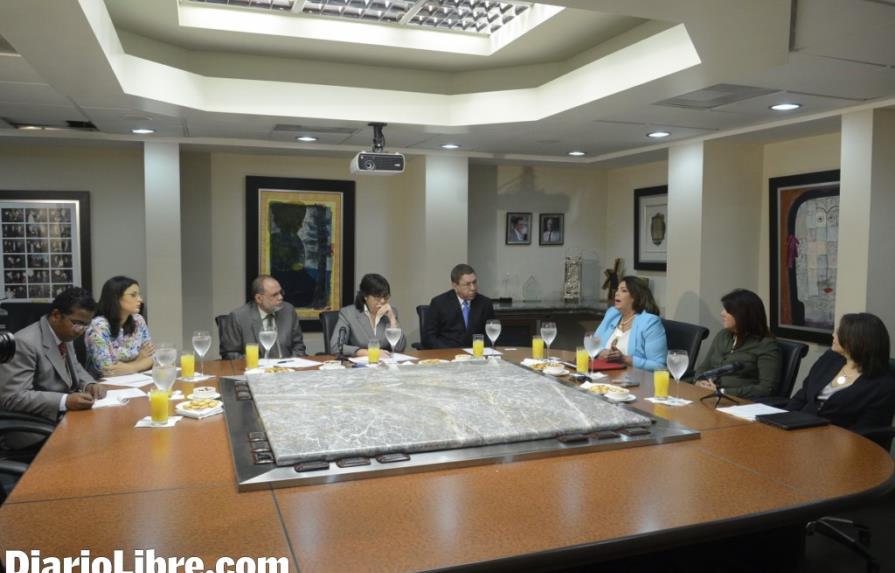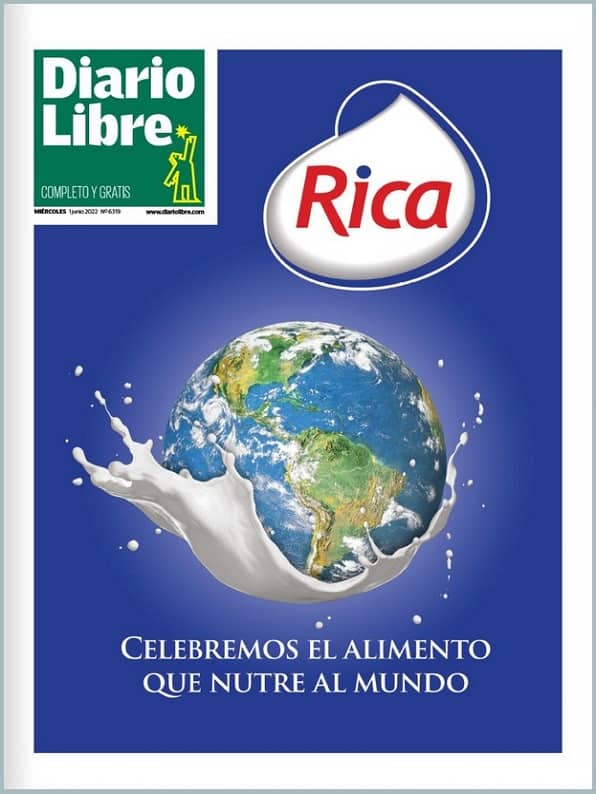Prosoli, beyond social handouts, has trained 181,000 families and 50% are in the labor market
Their initiatives seek to improve the quality of life of the participants

SANTO DOMINGO. In the two years of the current government administration, the Progressing with Solidarity Program (Prosoli) has trained 181,000 families, of which 50% have entered the labor market; some 10% with their own businesses and 40% are in different labor areas, which provides a contribution to the goal that the government has of creating 400,000 new jobs during this presidential period.
Prosoli works in several components for the creation of income: food security and the human training of the people that they have on their list of beneficiaries, for which they have 35 training centers at the national level for jobs and production. Through these components, the government is pushing for a better quality of life for the neediest people in the country.
To achieve these ends they are developing a strategy of family agriculture in the country through which they promote the creation of family gardens and promote cooperatives for agricultural development and strengthening. They also support the sale of their products, through a network of social supply which is handled by the administrator of Social Subsidies (Ades), business allies and in five stores that the institution itself manages.
"There is another strong component, which is that of human training and citizen awareness that make the interventions sustainable with a focus on the formation of values and human development. Within this framework is located the backup which is given to the families through 16,000 volunteers from the same communities and parts of the families who are trained by us and that visit each month the families being benefited from the program for a period of two years," said Altagracia Suriel, the director of Prosoli.
She explained that this work is carried out in order to provide guidance for the families on each one of the components of the programs; at the same time they seek to motivate the beneficiaries so that they carry out actions which allow them to join in the services of the state and so that they take part in community activities in favor of their own development. "And there is one last component, and it is habitability and there what we push for is that the family save in order to improve or repair their housing and they join in actions for the protection of the environment," indicated Suriel.
During her participation on the program Dialogo Libre, sponsored by this newspaper, in which Matilde Chavez, the director of the Unique System of Beneficiaries (Suiben), and Rosa Maria Suarez, the technical director of the Social Policies Cabinet, also took part, Suriel also stressed the importance of the conditional transfer of money, the family member supervision and the ties to the state services, actions which she defines as key strategies of Prosoli.
The official said that during two years of the government headed by Danilo Medina, Prosoli has been strengthened and she stressed that, with the arrival of this administration the capacity for verification was increased from 40% to 95%, which has been confirmed by audits from the Inter-American Development Bank and the World Bank.
Those who don't comply
"What we do about persons who do not fulfill their responsibility of health and education is that they will see their subsidy suspended or their money transfers conditioned," said Suriel, after specifying that the moneyt is not suspended definitively but rather temporarily until the person complies with the program.
In addition, Suarez said that in order not to penalize the families who do not comply with these conditions, the Coordinating Cabinet of Social Policies, which is directed by the Vice President of the Republic, Margarita Cedeño de Fernandez, made an alliance with the Ministry of Public Health to close the gap in the offer of medical services. "In this way a family that has made the effort to go to be vaccinated or to control their pregnancy is not penalized because the service does not exist," she pointed out.
She emphasized that since the cabinet has been carrying out activities to close this gap and over the last two years they have worked in the refurbishment of more than 500 centers of primary care and the construction of another 24 centers in places where these services were not offered.
She also stressed that they are working in coordination with the Central Electoral Board (JCE) and they have created four civil registry offices to provide the people with documents, whether it is "cédulas" or birth certificates so that this problem is not a barrier which impedes the access of the poor to the benefits of the program.
Rosa Maria Suarez, the director of the Cabinet of Social Policy
"From the cabinet we also work together with the Central Electoral Board to provide documents, the "cédulas or the birth certificates.
Matilde Chavez, director of the Suiben
"A household is poor, when you live in conditions of poverty, but also when the members do not have the training necessary to insert themselves in the productive areas."
Altagracia Suriel, director of Progressing with Solidarity
"What we do is that the people who do not fulfill their health and education responsibilities are subject to the suspension of their subsidy."
Prosoli works in several components for the creation of income: food security and the human training of the people that they have on their list of beneficiaries, for which they have 35 training centers at the national level for jobs and production. Through these components, the government is pushing for a better quality of life for the neediest people in the country.
To achieve these ends they are developing a strategy of family agriculture in the country through which they promote the creation of family gardens and promote cooperatives for agricultural development and strengthening. They also support the sale of their products, through a network of social supply which is handled by the administrator of Social Subsidies (Ades), business allies and in five stores that the institution itself manages.
"There is another strong component, which is that of human training and citizen awareness that make the interventions sustainable with a focus on the formation of values and human development. Within this framework is located the backup which is given to the families through 16,000 volunteers from the same communities and parts of the families who are trained by us and that visit each month the families being benefited from the program for a period of two years," said Altagracia Suriel, the director of Prosoli.
She explained that this work is carried out in order to provide guidance for the families on each one of the components of the programs; at the same time they seek to motivate the beneficiaries so that they carry out actions which allow them to join in the services of the state and so that they take part in community activities in favor of their own development. "And there is one last component, and it is habitability and there what we push for is that the family save in order to improve or repair their housing and they join in actions for the protection of the environment," indicated Suriel.
During her participation on the program Dialogo Libre, sponsored by this newspaper, in which Matilde Chavez, the director of the Unique System of Beneficiaries (Suiben), and Rosa Maria Suarez, the technical director of the Social Policies Cabinet, also took part, Suriel also stressed the importance of the conditional transfer of money, the family member supervision and the ties to the state services, actions which she defines as key strategies of Prosoli.
The official said that during two years of the government headed by Danilo Medina, Prosoli has been strengthened and she stressed that, with the arrival of this administration the capacity for verification was increased from 40% to 95%, which has been confirmed by audits from the Inter-American Development Bank and the World Bank.
Those who don't comply
"What we do about persons who do not fulfill their responsibility of health and education is that they will see their subsidy suspended or their money transfers conditioned," said Suriel, after specifying that the moneyt is not suspended definitively but rather temporarily until the person complies with the program.
In addition, Suarez said that in order not to penalize the families who do not comply with these conditions, the Coordinating Cabinet of Social Policies, which is directed by the Vice President of the Republic, Margarita Cedeño de Fernandez, made an alliance with the Ministry of Public Health to close the gap in the offer of medical services. "In this way a family that has made the effort to go to be vaccinated or to control their pregnancy is not penalized because the service does not exist," she pointed out.
She emphasized that since the cabinet has been carrying out activities to close this gap and over the last two years they have worked in the refurbishment of more than 500 centers of primary care and the construction of another 24 centers in places where these services were not offered.
She also stressed that they are working in coordination with the Central Electoral Board (JCE) and they have created four civil registry offices to provide the people with documents, whether it is "cédulas" or birth certificates so that this problem is not a barrier which impedes the access of the poor to the benefits of the program.
Rosa Maria Suarez, the director of the Cabinet of Social Policy
"From the cabinet we also work together with the Central Electoral Board to provide documents, the "cédulas or the birth certificates.
Matilde Chavez, director of the Suiben
"A household is poor, when you live in conditions of poverty, but also when the members do not have the training necessary to insert themselves in the productive areas."
Altagracia Suriel, director of Progressing with Solidarity
"What we do is that the people who do not fulfill their health and education responsibilities are subject to the suspension of their subsidy."


 Amílcar Nivar
Amílcar Nivar
 Amílcar Nivar
Amílcar Nivar